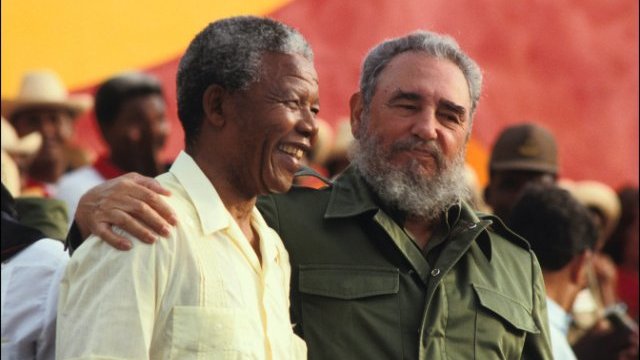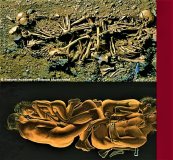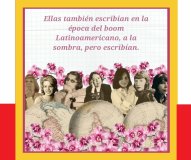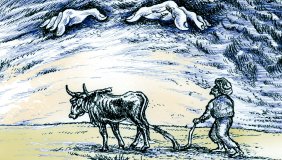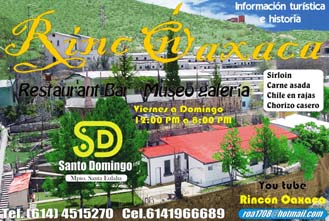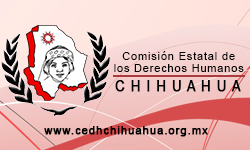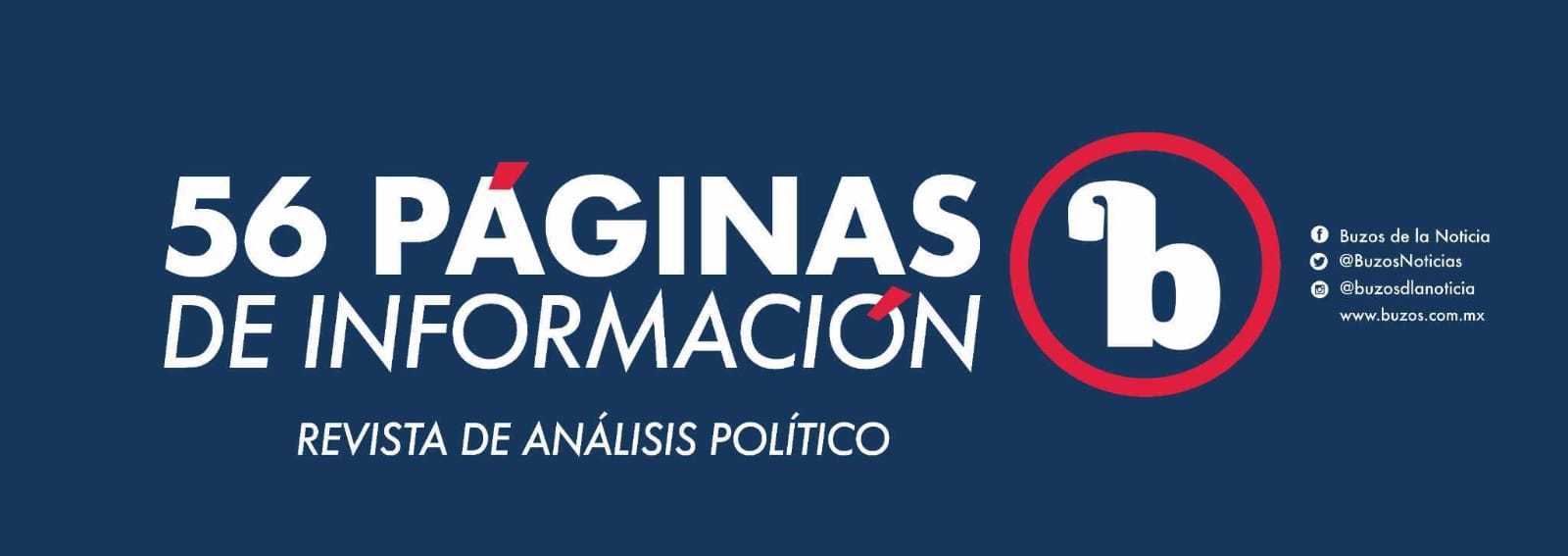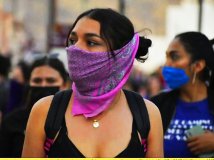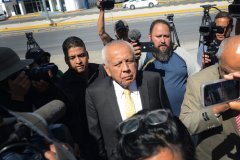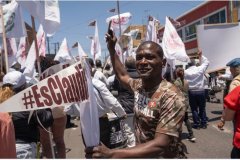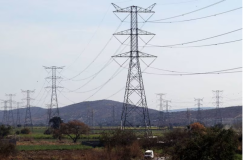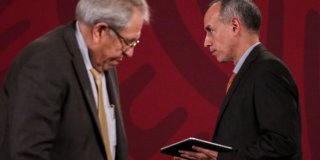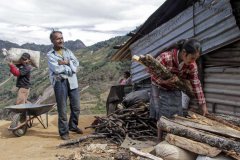Buscar
Director: Froilán Meza Rivera
redaccion@cronicadechihuahua.com
La Crónica de Chihuahua - Relatos urbanos, ciencia, cultura y noticias.
Socialist States are more Democratic than Capitalist States
MATANZAS, CUBA – JULY 26: Fidel Castro (R) and Nelson Mandela attend the anniversary of Moncada barracks attack on July 26, 1991 in Matanzas, Cuba. (Photo by Feliberto CARRIE/GAMMA/Gamma-Rapho via Getty Images)
La Crónica de Chihuahua
Enero de 2019, 09:17 am
/socialism-simplified.com
In Part 1 of this article, Our Right to Vote is not a Sufficient Measure of Democracy, we read about how capitalist countries are authoritarian and how voting in national level elections in capitalist societies is essentially ineffective. In the second part of the article, we shall explore democracy in Actually Existing Socialist states (AES states) and understand concepts of freedom and authority from a dialectical point of view as opposed to an analytical point of view.
AES states with a single party system, such as China, Cuba, and the DPRK (North Korea), have been incessantly slandered for decades and called “totalitarian dictatorships”. The popular understanding of democracy is a country with multi-party systems but here is the paradox of such democracy, as once pointed out by a comrade – in countries where different parties take power, the public is distracted with blaming one party or another over the lack of progress, instead of threatening the system which fails the people. In countries with a single party system (the members of which are also elected into power, not selected by a “dictator”), there is no other party to blame so the single party must champion the people or the very system is threatened.
Let us take a look at democracy and its outcomes in socialist states as a result of the changes in the material conditions in these societies.
Democracy in Cuba
Cuba has made the rounds in news recently with its new constitution draft. The Cuban constitution underwent a massive rewriting process in which more than 7,370,000 Cuban citizens participated in 7,234 community level meetings in workplaces and student centers over a period of a few months. These meetings led to 43,000 proposals for all articles of the project and over 700 changes to the constitution. An initiative of this kind is unheard of in developed capitalist states, where the “democratic” governments only serve to benefit the big businesses.
Cuba is also one of the first countries to have legalized same-gender sex. It decriminalized homosexuality in 1979, 24 years before the United States did. India decriminalized same-gender sex in 2018. So much for a dictatorship, then? The new constitution draft of Cuba has also changed the definition of marriage as a union between a man and a woman to a union between spouses, irrespective of their gender.
The literacy rate in Cuba in nearly 100%. Healthcare in Cuba is free, one of the finest, and universal. In a world where capitalist countries are accelerating devastating climate change despite the public’s efforts to hold their governments and big businesses accountable, Cuba is leading in environmental protection. According to NASA:
“Undeveloped ecosystems (forests and wetlands) cover 53 percent of Cuba, according to an analysis of recent Landsat imagery. About 40 percent of the island’s land surface is used for agriculture. Major crops include cassava, tobacco, grapefruit, and sugar. Reservoirs cover about 1 percent of the island’s land surface, and cities cover less than 1 percent.
Despite the patchwork of farmland and pastures, Cuba is known for having relatively large stretches of pristine mangrove forests and undisturbed coral reefs, beaches, and seagrass marshes.
‘Cuba is an ecological rarity in Latin America and the Caribbean region,’ said University of Vermont remote sensing scientist Gillian Galford in a 2018 report. ‘Its complex political and economic history shows limited disturbances, extinctions, pollution, and resource depletion.’”
The stories of the Doctors Brigade of Cuba which has selflessly worked to provide healthcare around the world needs no mention. As of 2005, Cuba became the world leader in the ratio of doctors to the population with 67 doctors per 10,000 population as compared with 43 in the Russian Federation and 24 in the United States. In 2014, more than 50,000 Cuban doctors were stationed around the world, including 32 African countries. Fidel Castro has helped tens of African countries in their struggle against imperialism and fight for freedom, including the South African fight against apartheid. Cuban troops have since the 1960s, served in Algeria, Guinea, Guinea Bissau, Equatorial Guinea, Sierra Leone, and Libya. Nelson Mandela had called Castro a “source of inspiration to all freedom-loving people”.
If this is a “dictatorship”, it sure does sound much better than Western democracies.
Democracy in China
China, in my opinion, is the leading example of successful socialism. After 200 years of brutal imperialism by both England and Japan, which reduced China to an extremely poor, backward state, the economic growth of China is unprecedented in history.
The Western capitalists view China’s success as a result of capitalism and Western Leftists view China as a betrayal of socialism. Both are hugely mistaken in their analyses for it is Socialism with Chinese Characteristics, rooted in Marxism-Leninism, which is responsible for its growth.
Class struggle is highly encouraged in China and especially under President Xi Jinping. Such class struggle has resulted in wages in China growing by 100% from 2011 to 2018 compared to the measly 1%-2% average in the world. Jawaharlal Nehru University professor Jayati Ghosh recently wrote that “China has augmented this effect through systematic state policies designed to improve labor conditions. As a result, the average nominal minimum wage in China nearly doubled between 2011 and 2018, and wages for workers in state-owned enterprises rose even faster. At the same time, the government has expanded other forms of social protections for workers, all while pursuing industrial policies geared towards boosting innovation and productivity growth, thus moving the country up the global value chain.”
China opened its economy in 1978 to foreign investment and private business but all the while remaining socialist at its core, by not allowing banking and land ownership to be privatized. China hasn’t suffered an economic depression in four decades and as our experience has shown, the disease of capitalism in the form of depression and inflation is rooted in real estate and private banking.
Under Xi Jinping’s government, the country is moving increasingly to the left. As of 2018, 1.87 million private companies have representation by government officials, which account for 73% of China’s private sector. China’s public sector makes up for 50% of its economy and contributes 40% to its GDP. In this context, it is important to mention that China has uplifted 740 million citizens out of abject poverty which is a huge contribution to world poverty reduction, too. “China’s poverty relief achievements have contributed more than 70 percent to global poverty alleviation work in the past 40 years.”
Class distinctions still remain deep in Chinese society but that will be addressed in a separate post.
Deng Xiaoping, who led the Communist Party of China after Mao Zedong’s death and implemented reforms that have enabled China to become the second largest economy in the world today.
Democracy in the Democratic People’s Republic of Korea (DPRK)
DPRK, as it is preferred to be known instead of North Korea, is the most evolved socialist state though thanks to half a century of propaganda by the West, the overwhelming majority of the world thinks of DPRK as a horrible, totalitarian country where the men are forced to have Kim Jong Un’s hairstyle and people eat grass to survive.
A little context to the DPRK will help us appreciate its society better. Korea before the division was ruled under Japanese imperialist forces against whom revolutionary leader Kim Il Sung (Kim Jong Un’s grandfather) fought and gained independence. The United States, as usual, interfered to subvert the communist revolution and enabled the division of Korea into two countries. It also carpet bombed the DPRK with 635,000 bombs, of which 420,000 were dropped in the capital city of Pyongyang itself. The population of Pyongyang at that time was 400,000 which means more than 1 bomb per person was dropped in the city. The bombing not only reduced the country to ashes and destroyed agricultural lands, but also wiped out 20% of its population.
The DPRK’s reconstruction is attributed to the national ideology called “Juche”, developed by Kim Il Sung and furthered by his son Kim Jong Il. An ideology of self-reliance, creativity, and mastery, centered around the masses, it is demonstrably the most evolved socialist philosophy, which is also rooted in Marxism-Leninism.
The government of the DPRK represents the masses and unlike Western media will have us believe, Kim Jong Un is not the totalitarian leader of the country. The Kim dynasty represents ideological leadership while several other elected members are decision makers and policy makers. Kim Jong Un is not even the President of the Presidium (it is Kim Yong-Nam and no, they are not related – Kim is just a really common name in Korea). The Chairman of the Supreme Leaders Assembly is Choe Thae-Bok and the Premier of the Cabinet is Pak Pong Ju. The DPRK government also has a legislative, executive, and judiciary that are answerable to the people.
Literacy in the DPRK is also 100%. Further, the government abolished direct income tax of its citizens in 1974. Healthcare in the DPRK is a leading source of inspiration for all developing countries. Healthcare is entirely free and with one doctor for every 130 families. As the Director-General Margaret Chan said, the DPRK’s health system would be the envy of many developing countries because of the abundance of medical staff that it has available. The life expectancy of the citizens in mid-1950s was around 35. The life expectancy of the citizens today is around 72. Further, contagious diseases have been largely removed in the DPRK, a remarkable achievement for a developing nation.
There is no homelessness in the DPRK. Housing is public and free. Crimes are almost non-existent, which makes the police force minimal and nearly unrequired. All theme parks, museums, and public infrastructure is available free of cost to the citizens.
If this is a “dictatorship”, all governments should aspire to be dictatorships.
Democracy in the Soviet Union
The former USSR has also been called a dictatorship and Stalin a tyrant. Little do people today know that the constitution that Stalin had drafted in 1936 for the Soviet Union was the most libertarian constitution of the world at that time. Here is a quote from Stephen Gowans’ blog again that explains how the Soviet was more democratic than the leading Western nations:
“Soviet democracy has been derided and ridiculed in the West. But let’s consider the Soviet form of democracy in 1936 versus the Western form. At the time, Britain had an unelected House of Lords (still does), while Canada had, and continues to have, an unelected Senate. Of 500 million inhabitants of the British Empire, only 70 million, or 1/7th, lived in political democracies. South Africa denied suffrage to its black population. In Canada and Australia, aboriginal people were not allowed to vote. India had no political democracy at all, and was governed by the British civil service. The United States denied civil rights to its black citizens, who lived in a state of oppression. In contrast, suffrage in the USSR was universal, hardly the tyranny by comparison with the West that Stone and Kuznick would have us believe it was.
The various peoples of the U.S.S.R were unified. Starvation and illiteracy were unknown throughout the country. Agriculture was completely collectivized and extremely productive. Preventive health care was the finest in the world, and medical treatment of exceptionally high quality was available free to all citizens. Education at all levels was free. More books were published in the U.S.S.R than in any other country. There was no unemployment.”
The Soviet Union was also the first non-black nation to give equal rights to black people and had created a far more secure society for minorities. The blacks in the United States are still being killed for being black.
In conclusion – Democracy in socialist states is far more successful than in capitalist states
Socialist states are built on the Marxist ideology of the “dictatorship of the proletariat”. This concept has led to much confusion among people who are not aware that Marx wrote in dialectics and hence his concepts need to be interpreted dialectically instead of analytically.
Dialectical vs Analytical Thinking
Philosophy has evolved significantly over centuries, however, Western philosophy has largely dominated our thinking. Logic and analytical thinking are not the only instruments to derive truth from facts. Dialectical thinking is an ancient but highly relevant mode of thinking that is employed to seek truth when analytical thinking fails.
The objective of analytical thinking is to render a statement as true or false. Such thinking ignores both context and historical materialism of an event. Are socialist states authoritarian? Yes. This is analytical thinking, based on only isolated demonstrations.
Dialectical thinking, on the other hand, helps us to synthesize two opposite but equally true statements by examining the context and the historical totality of the event in question. That socialist states are more democratic than capitalist states is equally true as the statement that socialist states are authoritarian. In dialectical thinking, when a question has two equally true but opposite answers, we seek to change the question itself. So the question here is not of individual liberty but of individual security.
With the right to education, healthcare, housing, and jobs, life in socialist states is far more secure than life in capitalist states where poverty, hunger, homelessness, healthcare costs, house rent, and unemployment are rising rapidly and severely incapacitating the working class.
Like Stalin had said, “It is difficult for me to imagine what “personal liberty” is enjoyed by an unemployed person, who goes about hungry, and cannot find employment. Real liberty can exist only where exploitation has been abolished, where there is no oppression of some by others, where there is no unemployment and poverty, where a man is not haunted by the fear of being tomorrow deprived of work, of home, and of bread. Only in such a society is real, and not paper, personal and every other liberty possible.”
In dialectical thinking, the meaning of words is interpreted differently. The “dictatorship” of the proletariat in Marxist theory does not mean a ruthless, soulless dictatorship of an all-powerful dictator who exploits the people for personal gain, but instead the dictatorship of a State that represents the working class, instead of the ruling class, and which exercises authority only to keep counter-revolutions by the ruling class in check, or to fight off external aggression, as it works to remove economic class distinctions in society.
It is this dictatorship of the proletariat that has enabled China, Cuba, and the DPRK to build societies that are far healthier, happier, more optimistic, and secure than capitalist societies.
©2024 La Crónica de Chihuahua - Relatos urbanos, ciencia, cultura y noticias
La Crónica de Chihuahua es un diario independiente, enfocado a describir las singularidades y la cotidianidad de la comunidad chihuahuense.

